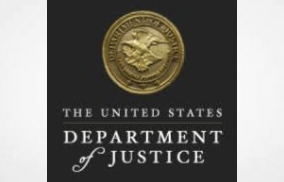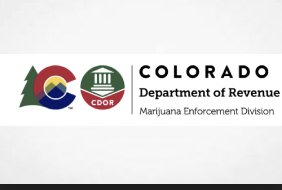
[co-author: Hanna Barker Mullin]
Cannabis: In Focus
- Federal Court Allows State To Import Cannabis-Related Paraphernalia
- Biden Announces Pardons of Federal Convictions for Simple Cannabis Possession and a Plan To Review the Current Schedule Status for Cannabis
- California Struggles To Tame Thriving Illicit Market
Federal Court Allows State To Import Cannabis-Related Paraphernalia
The Court of International Trade (CIT) recently held that a company in Washington state could lawfully import cannabis paraphernalia from other countries. Under the Controlled Substances Act (CSA), the importation of cannabis-related drug paraphernalia is illegal; however, the CIT found that Washington state met an exception to the rule which allows for import of such products.
Eteros Technologies USA, Inc. brought the suit after an attempt to import cannabis trimming equipment from Canada was derailed by U.S. Customs and Border Protection (CBP). Although federally it is illegal for any person “to import or export drug paraphernalia,” the CSA also contains exemptions, one of which applies to a person “authorized by local, State, or Federal law to manufacture, possess, or distribute such items.” 21 U.S.C. § 863. Washington state legalized adult-use cannabis in 2012, and the CIT found that fact to be indicative of a state’s authority to allow businesses to import cannabis-related paraphernalia. The court relied on Murphy v. NCAA, a U.S. Supreme Court case which held that a state’s choice to repeal a prohibition on an activity constitutes an authorization of that activity. No. 16-476, 584 U.S. ___ (2018).
Although an appeal is likely, attorneys for Eteros see this step as a monumental win for the cannabis industry. Since the federal government controls interstate commerce, cannabis and some cannabis-related products have been prohibited from crossing state lines, let alone country borders. This decision could open the market in a way that could lead to substantial growth for cannabis-related businesses.
Biden Announces Pardons of Federal Convictions for Simple Cannabis Possession and a Plan To Review the Current Schedule Status for Cannabis
President Joe Biden announced in early October that he intends to pardon those convicted of the federal offense of simple cannabis possession. The president noted the effects that these convictions have had on people of color, acknowledging that these communities are more likely to be arrested and convicted of possession of cannabis, even though they use cannabis products at the same rate. Those convicted of federal crimes face unremitting obstacles when seeking employment, housing, and educational opportunities, and the president stated that these punishments are too extreme for an offense that is legal in many states across the country.
In a three-part plan, the president outlined his intention to issue these pardons, urged governors to do the same at the state level, and asked the secretary of Health and Human Services (HHS) and the attorney general to review how cannabis is scheduled under federal law. Descheduling cannabis would mean opening the market up across the country, allowing for federal regulations and greater safety for the growing, manufacturing, and sale of cannabis products.
California Struggles To Tame Thriving Illicit Market
When Californians voted to legalize adult-use cannabis in 2016, they did so under promises of a safer market. Advocates marketed the proposition as a way for the state to make billions in tax revenue as well as lessen cartel control and provide a safer product that is free of harmful pesticides. A recent study has shown that the illicit market is still thriving in the state, and some say that the local governments are to blame.
States that allow local governments to opt out of cannabis sales continue to have prosperous illicit markets, and more than half of the cities and counties in California do not allow any kind of regulated cannabis business. California has also applied multiple taxes to those who wish to maintain a cannabis-related business in the state, which drives up prices for consumers. Many view the excise tax, state sales tax, local excise tax, local sales tax, and other associated taxes to be excessive and not supportive of a burgeoning market. These factors create an opportunity for the illicit market to thrive.
However, Californians have not given up on what they were promised in 2016. Advocates of the original bill are now proposing new bills to override the choice to opt out. In a significant step towards tackling the illicit market head on, California Attorney General Rob Bonta announced a task force to combat the illicit cannabis market in the state, expanding the focus of enforcement from illicit cannabis farming to include human trafficking, unlawful environmental practices, and tax evasion. The task force, named Eradication and Prevention of Illicit Cannabis (EPIC), will comprise officials from the California Department of Justice, California Department of Fish and Wildlife, the Bureau of Land Management (BLM), and the U.S. Forest Service (USFS).
















